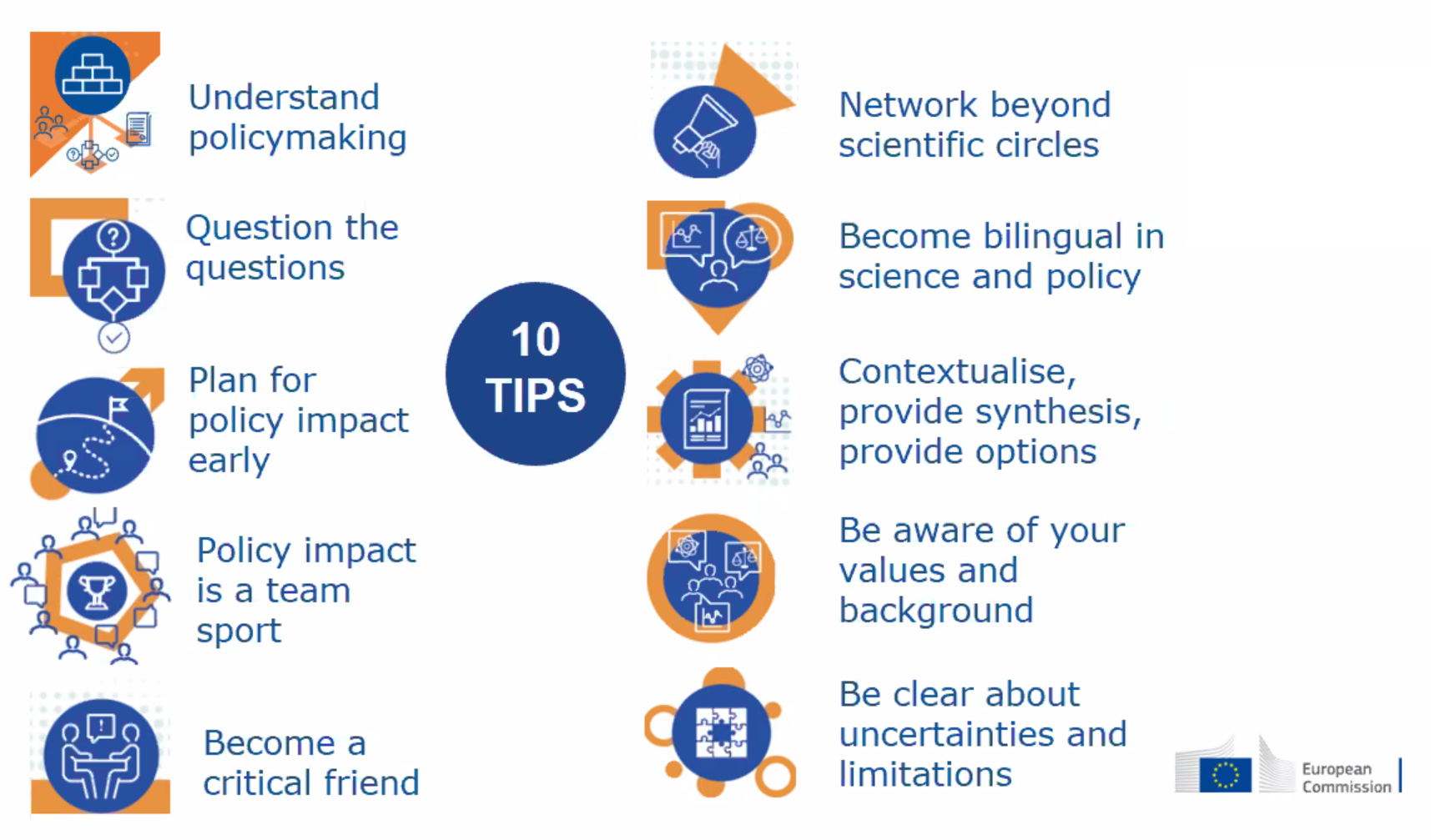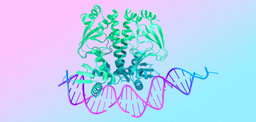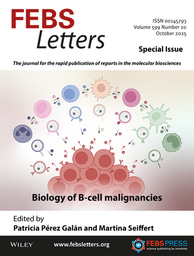Ten tips for scientists to connect science and policymaking

Policymakers may not have time or the right competences to engage with science. There are other sources of information, political considerations and other factors that interfere with the uptake of science in policymaking. Scientists may not deliver the findings in time. Or the research is not directly useful and relevant to the problem at hand.
But connecting science to policymaking is often important and beneficial. COVID-19 science did not only deliver the vaccine, but it also enabled governments to design and evaluate policy interventions.
Science offers evidence that results from the systematic pursuit of knowledge, e.g. following quality checks and peer review, as well as an expectation of methodological and theoretical rigour.
So what can a scientist do? Send a paper to the Cabinet of a Commissioner? Or a Head of Department? It is a bit more complicated than that – but the Joint Research Centre of the European Commission (JRC) has developed a list of ten tips that can help you to succeed in connecting science and policymaking.

1| Understand policymaking first
Actors, processes and operational logic in policymaking differ from those in science. What are the policy goals? How are decisions made? Who are the key actors? Follow parliamentary debates, discussions on Twitter, and participate in policy-relevant events organised by think tanks, political parties, etc. This will help you anticipate who may need relevant, timely evidence and when. Put yourself in the policymaker’s shoes, empathising with their responsibility for decisions that may have serious consequences.
2| Question the questions
Discuss and define relevant questions together with policymakers and stakeholders. If you do not have direct access, try to understand the issues and questions from public discussion. Remain sceptical, but not cynical: challenge questions and assumptions from policymakers and stakeholders. Do not hesitate to reframe the problems and be brave in suggesting other types of research evidence than those requested by policymakers (we all have blind spots).
3| Plan for policy impact early
Think about the policy impact of your research early, already when you design projects. Scientific curiosity is a powerful driver for research, but if you are serious about policy impact, be prepared to adapt your research to the needs of policy actors. Plan for impact strategically: policymakers need quick responses and questions evolve with political discussions. Who from policy, civil society or industry would be interested in your results?
4| Policy impact is a team sport
You are not a super-human. You cannot do everything. You cannot know everything and everyone. Improving the use of scientific evidence in a conscious and systematic manner is not an individual task but a collective effort. This includes policymakers (demanding evidence) but also colleagues, networks, and organisations in research (supplying evidence). Do your colleagues know the policy implications of your work? You may not always be in direct contact with policymakers, but your colleagues can be ambassadors for the evidence.
5| Become a critical friend
Trust is vital and it is only possible if science and policy work closely together. It is a direct function of reliable and open relationships, as well as a mutual understanding of needs, interests and values. Relationships based on trust allow researchers to understand and embrace policymaking. However, do not compromise your scientific integrity just to get the political message right. Be prepared to speak inconvenient truths.
6| Speak up in the policy debate
Networking (online and offline) beyond scientific circles helps you gain visibility and start to establish your trustworthiness in policy circles. You can do it by being invited to speak at policy events organised by think tanks, NGOs, media or political parties. Connect – online and offline – with relevant policymakers and other stakeholders. Use what you learn from the policy debates to fine-tune your work and make it more pertinent.
7| Become bilingual in both science and policy
Communicating to policymakers requires different approaches than to scientists. Being able to tell a captivating story – that you can back up with facts – is sometimes more convincing than yet more facts. Adapt your language and communication practices to this time-pressed audience: use shorter, simpler formats, avoid jargon and technical details and use narratives and visualisations. Think also of new channels: policymakers rarely read academic papers, but follow blogs, Twitter and listen to podcasts. Remember that they seek robust and easily digestible scientific evidence.
8| Beware a single study
Policymakers may prefer a concise, cross-disciplinary synthesis of the existing knowledge base, instead of the latest piece of research. Scientific novelty is not always a virtue in policymaking. Put your research in the context of wider knowledge and prioritise research synthesis and literature reviews. Relevant findings even from a decade ago may bring more impact if they are still valid and relevant to a current problem.
9| Champion diversity – no single discipline has all the answers
Often your background as well as professional and personal values influence the choices that guide your research. For instance, why did you choose a particular method, data set, or why do you discuss a specific subset of theories? It is important to be aware and open about how your background and values shape your research choices. Encourage diverse expertise in the policymaking ‘room’.
10| Be clear about uncertainties and limitations
Avoid the temptation to smooth out uncertainties and disagreements within the knowledge base to try to help policymakers with a clearer message. Communicate uncertainties and unknowns in understandable terms, avoiding scientific jargon. Understanding the policy context helps you to judge which of these uncertainties and gaps are important for policy decisions.
Policymaking is complex and messy, and scientific evidence is only one part of the equation. Science cannot resolve values dilemmas or decide how to make the necessary trade-offs between different interests - that is for the politicians. As for excellent science, policy impact takes time. Sometimes you will not see it, especially not in the way you see citations, even if it does exist. Accept it, try your best, and learn for the next time.
Photo by Gabrielle Henderson on Unsplash





Join the FEBS Network today
Joining the FEBS Network’s molecular life sciences community enables you to access special content on the site, present your profile, 'follow' contributors, 'comment' on and 'like' content, post your own content, and set up a tailored email digest for updates.